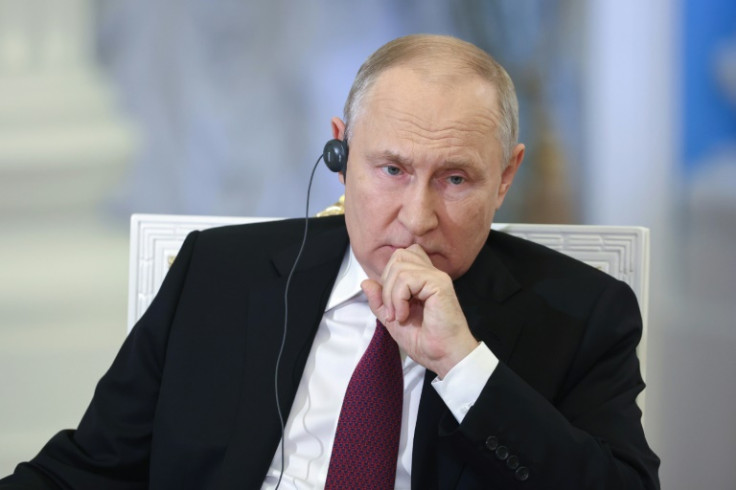Russia Close To Creating Cancer Vaccine, Claims Vladimir Putin
Various forms of cancer continue to claim millions of lives globally every year.

Russian President Vladimir Putin has claimed that the country is close to creating vaccines for cancer.
Putin made the shocking claim at a Moscow forum on future technologies. However, he did not give any details about the type of cancer or how long it might take to create the vaccine.
"We have come very close to the creation of so-called cancer vaccines and immunomodulatory drugs of a new generation," he said at the event. "I hope that soon they will be effectively used as methods of individual therapy," per the Independent.
Scientists across the world have been working to develop vaccines for various forms of cancer, but no one has been able to achieve anything concrete so far.
There are some vaccines available against human papillomaviruses (HPV) that cause several types of cancer, as well as vaccines against hepatitis B (HBV), which can cause liver cancer. Doctors recommend hepatitis B testing for all adults at least once in their lifetime.
HPV is mainly a group of viruses that infect the skin and other moist membranes of the body. It is a sexually transmitted virus spread through unprotected sex via vaginal, oral, and anal sex, as well as skin-to-skin contact with the genitals.
There are 13 types of HPV known to cause cervical, penile, and some forms of mouth and throat cancer.
HPV types 16 and 18 are what cause most cervical cancers and have been linked to prostate cancer. Roughly 8 out of 10 people get infected with HPV at some point in their lifetime.
Meanwhile, researchers are testing for vaccines that can prevent other types of cancer, such as brain tumours, breast cancer, cervical cancer, leukaemia, and prostate cancer.
By the numbers:
Various forms of cancer continue to claim millions of lives globally every year. It is the second-leading cause of death globally, accounting for an estimated 9.6 million deaths in 2018.
Every two minutes, someone in the UK is diagnosed with cancer, according to the data provided by Cancer Research UK.
The UK National Health Service has been taking considerable steps to prevent, detect, and treat cancer cases. Last year, it launched an AI tool that helps reduce patient waiting times for terminal illnesses.
The new technology known as OSAIRIS is helping doctors reduce hours of waiting time for cancer patients as the time for preparing for the scan and referrals for radiotherapy gets streamlined. This special technology is currently being used by the NHS at Addenbrooke.
© Copyright IBTimes 2025. All rights reserved.






















